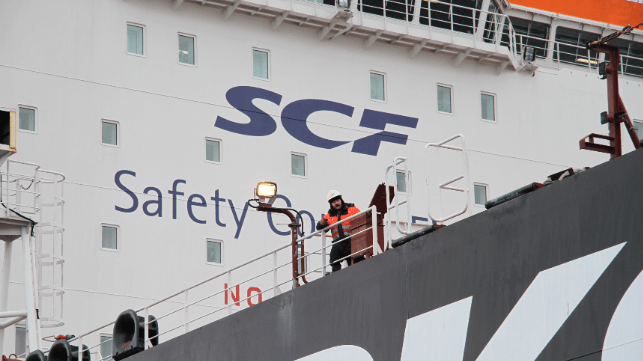UK Targets Sovcomflot With New Sanctions on Shadow Fleet Tankers

The government of the UK has placed 18 more tankers and four LNG carriers under sanctions for their participation in the Russian "shadow fleet," the lightly-regulated tanker pool that carries an estimated 70 percent of Russia's seaborne petroleum exports. It is the largest round of tanker sanctions that the UK has carried out to date, and it serves as a symbol of objection to the Russian invasion of Ukraine. In a statement, Foreign Secretary David Lammy said that he has made it his "personal mission" to constrain the Kremlin and its energy revenue stream in order to "combat malign Russian activity at every turn."
The UK Foreign Ministry specifically named Russian state tanker company Sovcomflot - once a blue-chip vessel operator - as a target of the sanctions action. "Today we have targeted even more of [Sovcomflot's] ships, further turning the screw on the mechanisms the Kremlin uses to fund its illegal war," the ministry said in a statement.
The list includes many former Sovcomflot vessels that have been reflagged in Gabon and transferred to Stream Ship Management, an opaque UAE-based firm that holds multiple ex-Sovcomflot ships. Many of these vessels still bear the company's "SCF" prefix, like the SCF Samotlor, or retain their former Russian names, like the Moskovsky Prospect.
The UK sanctions listing cuts these vessels off from the UK's world-leading marine insurance market, and it bans them from entering any UK port. However, any foreign entities can still transact with these vessels without risking UK penalties, and most shadow fleet vessels have already ceased using International Group insurance.
The government of UK Prime Minister Keir Starmer said that it was taking action because of the heightened risk of a casualty from the shadow fleet's "flagrant violation of basic safety standards." The outcome of an accident involving a Russian tanker could include pollution of the UK's shores, as well as the possibility of a disruption to commerce in a busy sea lane.
The pollution is already occurring, even without a major spill. Working with SkyTruth, Politico has linked the Russia-serving shadow fleet with a series of oil slicks large enough to be detected by satellite. The pattern suggests discharges of oily waste on the high seas, a cost-saving measure that is illegal but common for internationally-trading merchant vessels.
The slicks are a preview of what might happen in the event of a major shadow fleet casualty, experts told Politico.
“The oil spills and risk of slicks are horrendous,” said Isaac Levi of the Centre for Research on Energy and Clean Air (CREA). “Beyond the environmental damage, some of which will be irreversible, it’s a huge impact to coastal states that have to bear the cost of cleaning this up.”
In July, Prime Minister Starmer announced a "call to action" on the risks of the shadow fleet. The petition now has about four dozen signatories, including the United States. The U.S. government's secondary sanctions apply globally, to any foreign entities, and the penalty for noncompliance is loss of access to the U.S. financial system - a potent deterrent for most legitimate international firms.
No comments:
Post a Comment